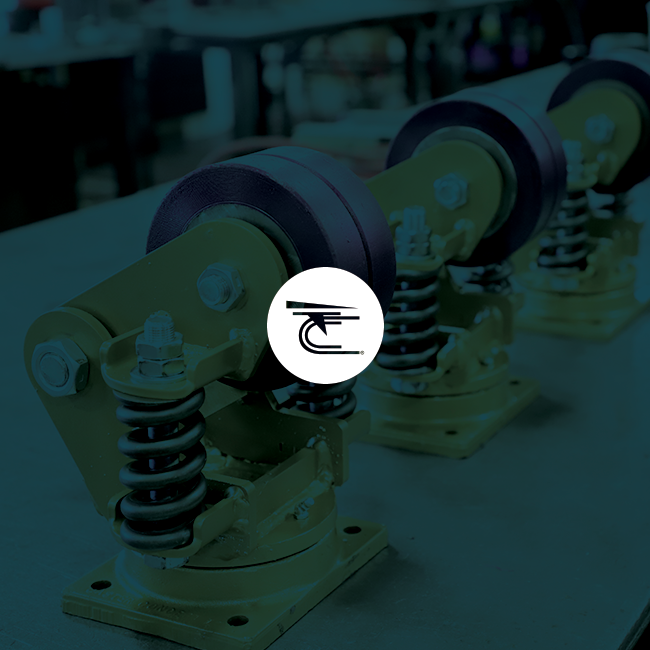

When to use spring loaded casters is a good question that many engineers ask and this short blog will offer of some suggestions that will be beneficial for those who procure casters for their application. Typically, spring loaded casters are used in environments where shock and vibration are prevalent. In these types of environments, if a conventional caster is used, the products in transit will have a higher probability of sustaining damage. Protecting your cargo would be an initial consideration when deciding if one wishes to procure spring-loaded casters. Industries where spring loaded casters are used: glass manufacturers, computer manufacturers, engine plants, and any industry where sensitive sound and lighting equipment are being transported.
Another benefit when using a shock-absorbing caster would be the protection of plants floors. Companies invest millions of dollars on epoxy painted floors only to have them destroyed by casters with heavy loads. Many times, with conventional casters, the floors are damaged as a result of the floor being uneven and with a cart in transit running over these areas and the heavy loads are not equally distributed over all the casters. The heavy load, not being equally distributed, will cause stress points on the floor. A spring-loaded caster will always equally distribute the load reducing higher stress points on the floor and thus reducing the potential for damage. Paying more for a shock-absorbing caster will eliminate the high costs of repairing floors.
Another area of consideration when looking at spring-loaded casters is the life expectancy of the caster itself. A spring-loaded caster protects the bearings and the wheel from premature failure. Investing more upfront when buying a spring-loaded caster may pay off in the long run. Consider the number of times a conventional caster is replaced and the time and money paying your staff to replace the casters.
The last factor in the choice between conventional and spring-loaded casters is the human factor. Carts with casters in transit in your plant can result in high noise levels. I have been in plants where noise levels have reached 115 decibels. This can be a health factor for your workers. The potential for hearing damage which results in loss time and possibly workers comp increases must be considered. Shock absorbing casters can reduce noise levels. CasterShoX®, a product developed by CCI, has been tested to reduce noise levels by 15 decibels.
These are a few reasons to consider spring-loaded casters. Protecting your investments may it be product, floor, or your employees are all-important and all personal.
Still wondering about when should spring loaded casters be used or do you have a concern regarding choosing casters in the workplace? Please contact us at 517-680-7950 or email customercentral@casterconcepts.com.